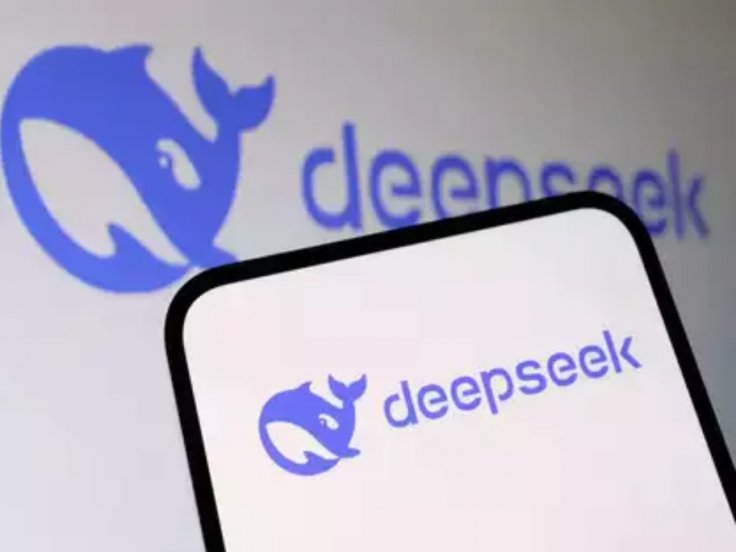DeepSeek, a Chinese app that triggered a $1 trillion market crash in the U.S. this week, is storing its fast-growing troves of U.S. user data in China, raising similar national security concerns that prompted Congress to take action against TikTok. The AI-powered chatbot surged to the top of the charts on both Apple's App Store and Google's Play Store on Tuesday.
Since its release on January 15, DeepSeek has been downloaded over 2 million times, with the majority of those downloads occurring in the past three days, according to AppMagic. However, concerns grew on Tuesday after it was reported that the chatbot is collecting and storing US data in China.
Fresh Concerns Over DeepSeek

While other chatbots like ChatGPT also gather large amounts of user data, the use of China-based servers by DeepSeek—created by math-savvy hedge fund investor Liang Wenfeng—sets it apart and presents a major privacy risk for Americans, experts told The New York Post.
"What sets this context apart is that DeepSeek is a Chinese company based in China," Angela Zhang, a law professor at the University of Southern California focused on Chinese tech regulations, told the outlet.
"This raises the question of whether the collection of data such as IP addresses and keystroke patterns could pose a national security threat," Zhang added.
DeepSeek's terms of service reveal that user data is stored "in secure servers located in the People's Republic of China." The company also collects information such as "device model, operating system, keystroke patterns, IP address, and system language" automatically.
All Chinese companies are required to comply with the country's cybersecurity laws, which mandate sharing data with the government when requested.
Due to the security risks linked to DeepSeek's connections with Beijing, the U.S. Navy has asked its members to avoid using the chatbot, according to a CNBC report on Tuesday.
A Navy spokesperson confirmed that the military sent out an email to its personnel, referencing the Department of the Navy's Chief Information Officer's policy on generative AI, the outlet reported.
Censorship Bias

The Chinese chatbot has also shown signs of censorship and bias, including refusing to answer questions about China's president Xi Jinping, the 1989 Tiananmen Square massacre, Taiwan's status as a country, and allegations of human rights abuses against Uighurs in Xinjiang.
In some cases, DeepSeek starts to generate a response but stops mid-sentence, saying that the prompt is "beyond [its] current scope."
The issue of data storage in China was a major factor behind U.S. lawmakers' push to ban TikTok, a ban that was implemented this month after Chinese parent company ByteDance failed to sell its stake by the January 19 deadline. President Donald Trump had previously issued an executive order to delay enforcement of the ban.
This week, the bipartisan select committee on China, which spearheaded the TikTok efforts, shared an image labeling DeepSeek as a "trojan horse."
Committee chairman Rep. John Moolenaar (R-Mich.) said that Congress should act quickly to impose stricter export controls on technologies essential to DeepSeek's AI infrastructure. "The US cannot allow CCP models such as DeepSeek to risk our national security and leverage our technology to advance their AI ambitions," Moolenaar said in a statement.
Josh Kushner, whose venture firm Thrive Capital is a major investor in OpenAI, criticized colleagues who were publicly promoting DeepSeek, claiming that the app was developed using U.S. technology.
"'Pro America' technologists openly supporting a Chinese model that was trained off of leading US frontier models, with chips that likely violate export controls, and – according to their own terms of service – take US customer data back to China," Kushner wrote Monday on X.
Meanwhile, OpenAI's Sam Altman acknowledged that DeepSeek was an "impressive model," but confidently stated that his company would "obviously" surpass it with future releases.
In contrast, training OpenAI's GPT-4 cost over $100 million, and last year, Anthropic's Dario Amodei indicated that models under development could cost $1 billion or more.
The revelation led to a sharp decline in U.S. markets, wiping out over $1 trillion in market value as investors reconsidered the necessity of advanced hardware from Nvidia to support AI models, questioning its importance moving forward.
It also prompted many to wonder if the U.S. had lost its perceived edge in AI technology to China.









